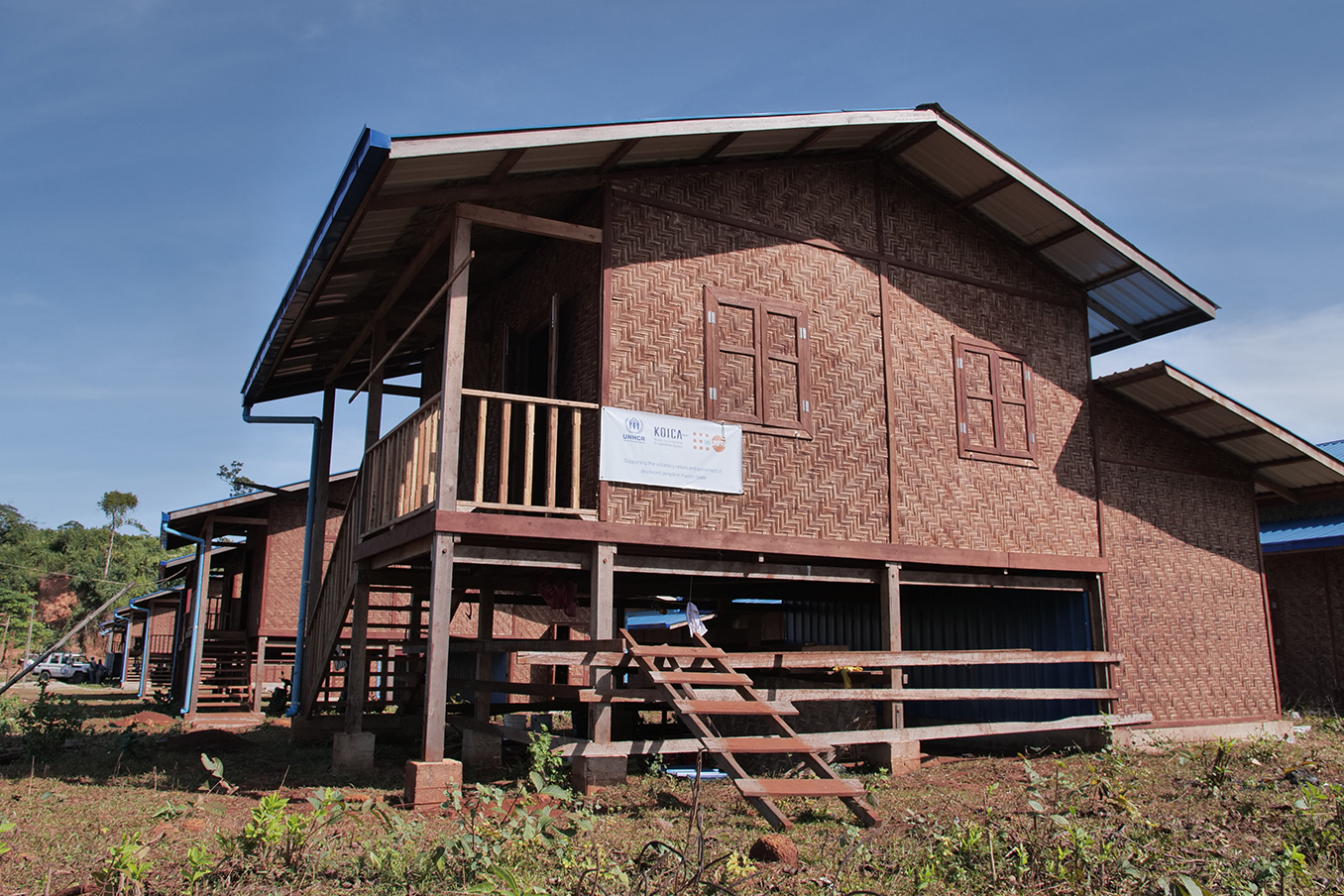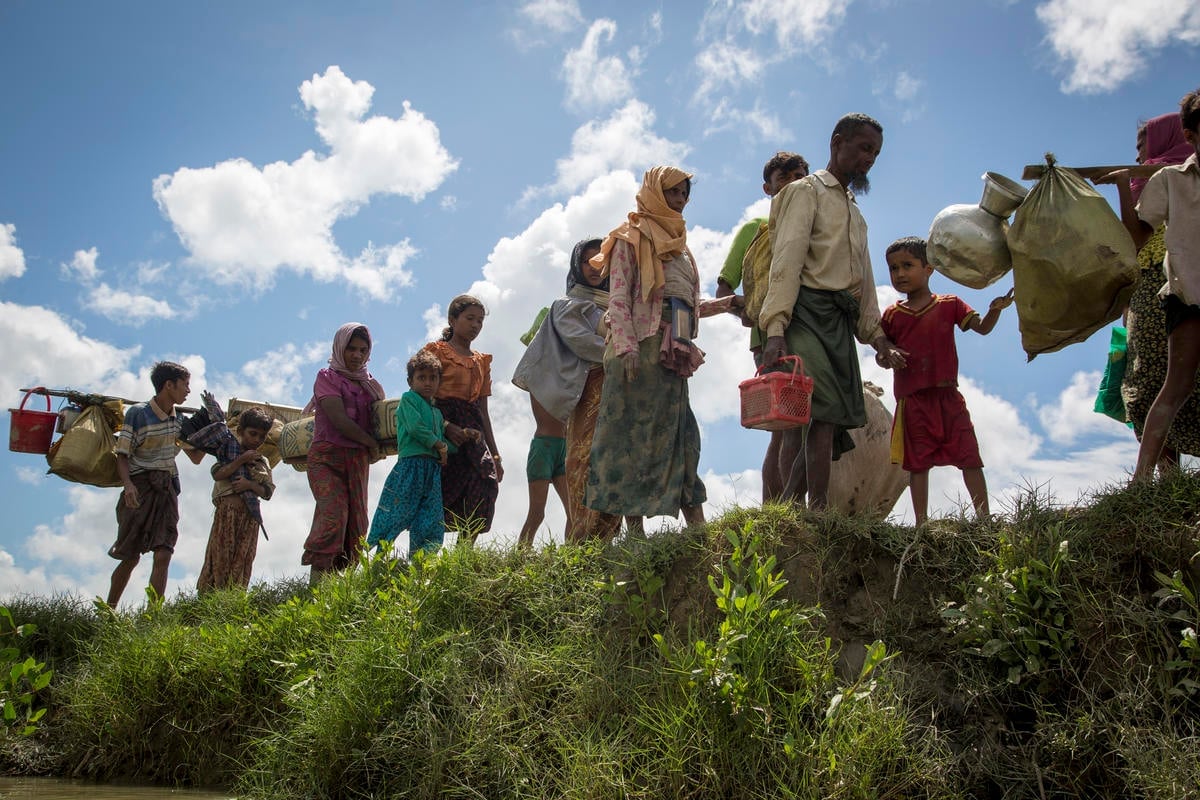#RealLifeHeroes: On World Humanitarian Day, reflections from the COVID frontlines

#RealLifeHeroes: On World Humanitarian Day, reflections from the COVID frontlines
Dr. Taznuva Sultana Tonni, a 29-year-old Bangladeshi doctor, works as UNHCR’s Public Health Associate in Cox’s Bazar, Bangladesh.
After joining UNHCR in February 2020 – just as COVID-19 began spreading across the world – Dr. Tonni now helps to keep refugees and the local community safe and healthy amid the greatest global health challenge for generations. She is just one of the #RealLifeHeroes being celebrated today, on World Humanitarian Day.
Dr. Tonni reflects on the rewards and challenges of being a humanitarian, and explains why it’s her “dream job”.
What made you decide to become a humanitarian worker? How did you get to where you are today?
When I was a child, I wanted to study pharmacy or genetic engineering. But my mum dreamt of either me or my brother becoming a doctor. My brother refused, so I said I would do it! At university, I was always fascinated by public health. As part of my degree, I studied community medicine. My professor encouraged me to focus on public health and told me that he saw potential in me in this area.
When the Rohingya refugee influx from Myanmar began in 2017, I got a job with Relief International. When I first arrived in Cox’s Bazar, I was struck by the situation of the children in the camps; they’ve lost everything. I couldn’t imagine my child there and having that kind of life. It gave me shivers; it made me think a lot. I thank God that I’m in a good situation, but this made me even more passionate about humanitarian work. I want to do something for the children. It’s not their fault, they are not responsible, but they suffer the most. This just drives me crazy.
Humanitarian work has turned out to be my dream job; it was really what I was looking for, even if I didn’t know at first. Now I love my career, and I’m grateful to my mum.
You’re currently working long hours on the COVID-19 response in the Rohingya camps in Cox’s Bazar, while also raising your young son. How do you balance your work and your personal life?
When I first came to Cox’s Bazar, it was very tough for me to settle in. My son was only one year old at the time and it was just the two of us. It was a huge struggle to do this alone, to bring up my son and have a career at the same time. I was also working long hours and coming home to breastfeed him, which was tough.
It’s a bit easier now, but in our country, it’s never an easy situation. But my family are so supportive of me. If they weren’t, I couldn’t do this.
You joined UNHCR as Public Health Associate just as COVID-19 was beginning to spread around the world. How has the global pandemic re-shaped the activities you’re involved in?
The pandemic changed everything here; it has transformed the focus of our activities. For me personally, I became heavily involved in the establishment and running of the first Severe Acute Respiratory Infection Isolation and Treatment Centre (SARI ITC). These facilities, which serve both refugees and the local community, are where COVID-19 positive patients with moderate to severe symptoms can be sent for treatment. UNHCR completed the first two SARI ITCs in May. In all, the health sector partners, in support to the Government, have now opened a total of 12 SARI ITCs. The overall aim is to provide over 1,000 additional beds, as well as supporting Government facilities. My role is to coordinate and communicate with partners on the services at the SARI ITC. I was so happy to get this opportunity, but it’s also a lot of pressure.
Working from home is not an easy thing to do. I also have to go to the field regularly – both to the SARI ITC and to the camps – as I coordinate the health response in two camps, too. Actually, I am the only female health sector focal point coordinating the health response in the camps.
Life has completely changed. I don’t know when it will be normal again. Things have been tough, especially with my kid. Keeping him inside all the time during the pandemic made him quite irritated. Handling him was the toughest part, besides working from home.
Today is World Humanitarian Day, a day on which we celebrate the spirit of humanitarianism and pay tribute to those who have committed themselves to serve people in need. What does being a humanitarian mean to you?
To me, being a humanitarian means to be compassionate, to help people in need without discrimination, to be a support to people who can trust you in their time of suffering.
I would encourage more women and girls to get involved with humanitarian work – it is so important to have a female perspective.
I love to dream of a better world for all children, as I dream about for my own child: a safe, secure and selfless world.
|
The referenced media source is missing and needs to be re-embedded.
|
For more stories of #RealLifeHeroes, visit www.worldhumanitarianday.org.









